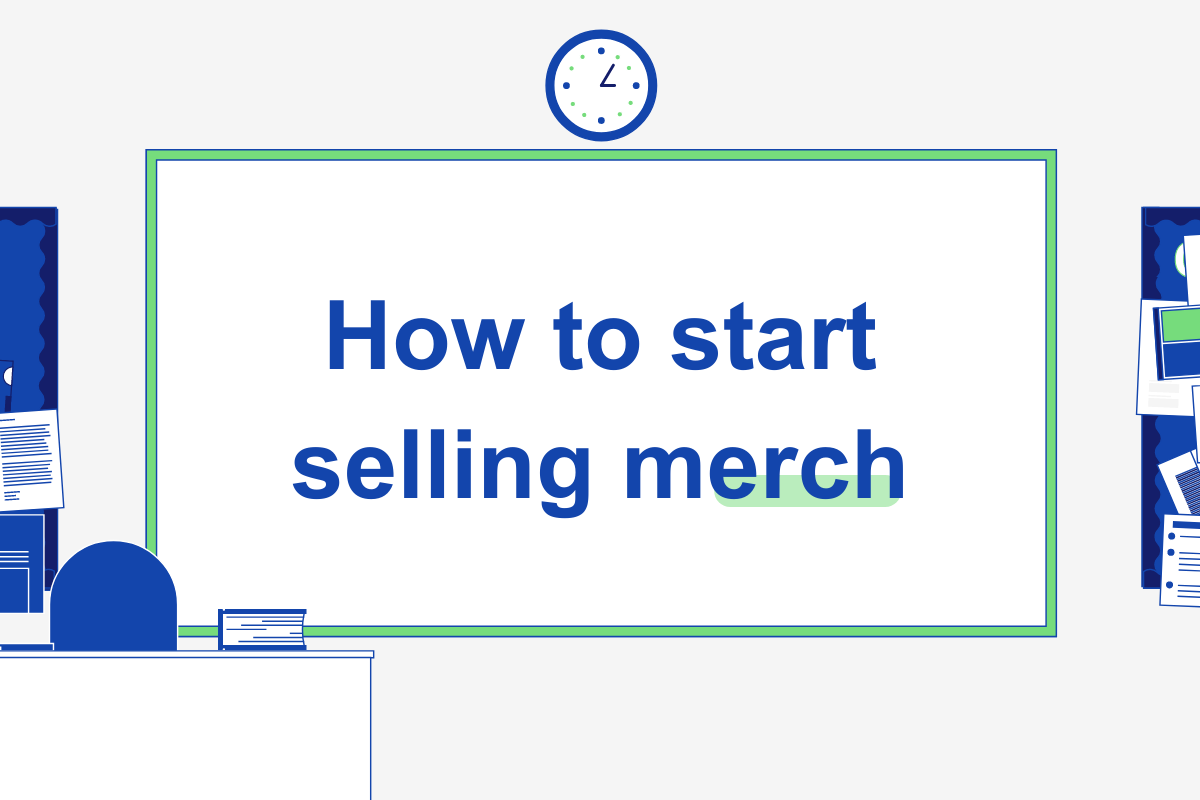How to start selling merch
Good artist merchandising is one of the pillars of becoming a successful musician, band or producer. We’ve pulled together six useful ideas for how to sell merch as an artist.
Looking for music merchandise ideas? Merch can be so much more than simply slapping your artist logo on a t-shirt.
Artist merch is a brilliant way to build a stronger bond with your fans. For them, it’s a memento of the night they spent at your show; a way to tell other people they support your music; a way to spot others who are in the same music tribe.
Merchandise is also free advertising – people will ask about the band on someone’s shirt or on the mug they’ve brought into work. It’s an important source of revenue for independent artists, too.
Whether it’s your first merch drop or you’re looking for fresh inspiration, read on for music merchandise ideas and ways to make the most of your merch.
Make it easy for your fans
You want to make buying merch online as spontaneous as someone stopping by the merch table at a show. Take card payments at the venue, and use a legit payment platform on your website.
Don’t make fans have to dig around to find your merch; put it on your band Instagram; make sure you link to products from your Spotify profile. Think like a company and don’t put fans off by providing a slow or unreliable service.
Where to sell merch
A live concert is your chance to plug your merch to your fans whilst you have an in-person connection with them. Direct the audience straight to the merch table at the back of the venue.
Add Spotify Codes to merchandise like posters to direct fans right back to stream your music. Once scanned the codes will take the user to your Spotify profile, a bit like a QR code.
Be clever with what merchandise you sell
Merch doesn’t have to be boring. Sick of shirts and mugs? Put your designs on tote bags or phone cases.
Think about what merchandise you could give away for free or super-cheap, to help promote your music, especially when you’re just starting out. We’re talking badges, stickers and signed flyers.
If you’ve got an established fanbase, or you’re planning a big tour, it’s good to order merch in bulk. Get in large quantities of the concert t-shirt or other product – it’s cheaper that way.
Tailor to your fans
Make your merch unique by thinking about what your fans are typically like: Are they alternative; trendy; younger; older? It makes sense to create merchandise that matches your target demographic.
You can also tailor your merch to your own artist character or style. If you’ve got a bold outfit you always wear onstage, your fans might well love to copy you.
Provide a personal merch service with bundles. Create different bundle tiers, from just a download to a download plus vinyl, t-shirt and badges, with a personalised stamp.
Or – keep it simple
Keep the first drop small so you don’t overestimate the demand for your artist merch. Merchandise companies may offer print-on-demand, which is good for when you’re first starting out, to stop stock piling up in your hallway.
You might want to stick with simple products at first, although even the simplest merch requires careful planning. Whilst your logo on a black t-shirt is enough to guarantee you some sales, you don’t want to end up with thousands of unsold shapeless oversized shirts because you haven’t thought about the design.
Hype up your product
When you’re not on tour, keep the merch drops exclusive. Spread the word on social media beforehand with lots of teasers and promotional posts aimed at your most loyal fans.
Limited runs will create a must-have air around your merch drop; quirky merchandise will boost discussion around your music online and in the real world. Create merchandise specific to releases to build up excitement around your new songs.
Try running social media competitions with merch included in the prize, to promote your products to everyone regardless of whether they win or not.
What merchandise is best for your music will be dependent on your artist style and your budget. Merch is more than just a happy bonus for fans – it can be the thing that makes a tour profitable.
Sell your artist merch wherever you go, online and offline, and get ready to look out from the stage to a sea of concert t-shirts.
